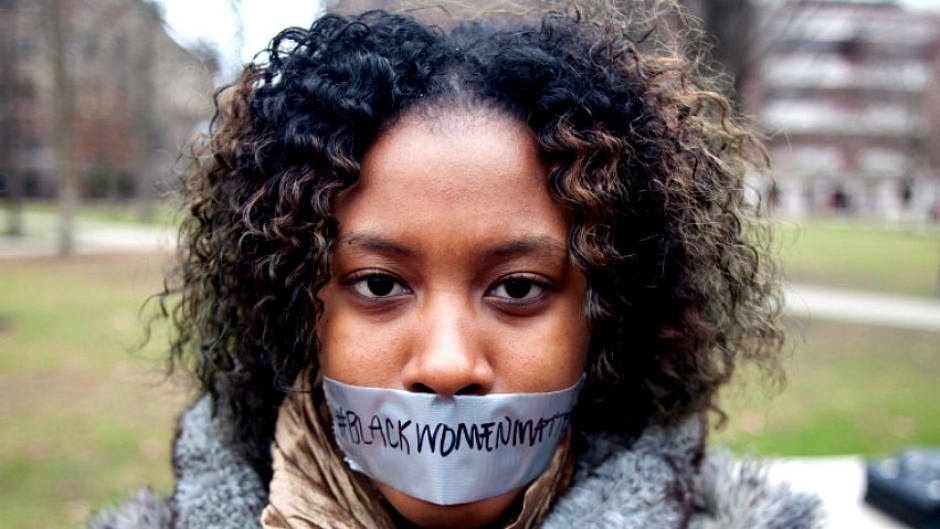Featured Image: Bria Graham, 22, AP Photo/The Ann Arbor News, Patrick Record
“If you are silent about your pain,
They will kill you and say you enjoyed it.”
Zora Neale Hurston
So Bill Cosby wants to go on a town hall tour to discuss how to protect oneself from accusations of sexual assault.
Of course that met its own ire. His publicity team was quick to respond to that though, despite what they clearly previously stated in interview arguing that, “this is not a sexual assault tour as many media have sensationalized it. It is an educational tour on what people should be cognizant of in regard to sexual abuse allegations and the dangers.”
I’ll spare you an analysis on the respectability politics that I expect that to be riddled with, as has become characteristic of Bill Cosby’s public statements in recent years.
To be clear, Cosby’s June 2017 trial in Philadelphia ended in a mistrial. Not an acquittal. But a mistrial. 10 out 12 jurors agreed on guilt on two out of three charges. At one point, 11 out of 12 agreed on the third. Mistrial was declared as a result of a deadlock.
Upon his leaving the Philadelphia courtroom in what he and his publicity team turned into a spectacle of triumph, Bill Cosby’s apologists shouted his praises all across the country and all over social media. They’ve called his vilification one of the most hallowed pieces of Black and American history: a public lynching. Although ridiculous, I fully understand where the fears come from. We have never been in a shortage of extrajudicial murders of Black men, nor multitudes of Black men snatched from their families and communities due to false accusations, some of which have since been cleared based on DNA evidence, as The Innocence Project highlights. Their amazing work is absolutely needed, as so many Black men and women still languish in prison, victims of the racist prison industrial complex.
There absolutely is racist nuancing involved. I will say this as well about the Bill Cosby scandal: I’m not convinced by the mainstream (white) feminist movement’s mob mentality in addressing his actions simply because, when it comes to the healthy self image of, media representation of, media attacks against, protection of, and justice for Black women, these same folks are usually mute. That clearly indicates that the intention isn’t justice or equality…. so I wonder what it truly is, then.
Why is the accusation of Bill Cosby being publicly “lynched” absurd, beyond the obvious fact that he is not literally being strung up? Simple: several of his known accusers, nay I say victims, were Black women.
You can click here to view Noreen Malone’s landmark June 26, 2015 piece featuring 35 of the accusers with portraits by Amanda Demme, that ran in NY Magazine’s “The Cut.”
So let’s start by unpacking what “lynching” actually is, in terms of the American cultural lexicon. Lynching is and was the mob so-called vigilante murder of Black men and women – and Latino, Arab, perhaps Slavic, in a few instances – perpetrated by WASP (white Anglo-Saxon Protestant) people, largely aided and abetted by law enforcement, supported and publicized by press, or done in the darkness of the night, and supported and excused by the court system, especially in but not limited to the American South. Lynching was a form of “punishment” or consequence and a form of intimidation. It established and maintained social order for white folks and told Black folks where, when, who and how they were not allowed. The most common catalyst for these lynchings? According to the Red Record, researched, compiled and reported by Ida B. Wells-Barnett, a vast majority of these lynchings were carried out against Black men due to an accusation of rape of or sex with a white woman.
Simply put, lynching was a tactic used by white folks to protect the sanctity and chastity of white womanhood. Literally, that was a catalyst for the formation of the Ku Klux Klan. The film “A Birth of a Nation” was itself centered around the savagery of Black men, as it was believed. President Woodrow Wilson himself cosigned the belief, and so did many medical and scholarly journals from the eve of the Civil War until the mid 20th century. In that film, it was shown in detail, as was a primary argument against the abolition of slavery, that the assumption was that with freedom, Black men would go wild like the beasts that they were and go on frenzies raping white women, defiling their sacred womanhood. This same assumption was coupled with the assumption that Black people and Black men specifically would languish around not knowing how to care for themselves with the minds of children, remain vagrant, couldn’t be given the ability to fight in the Civil War or military for fear of arming themselves against whites in general, and would otherwise get addicted to drugs and go on rapey drug fueled rampages. The vagrancy laws throughout the country were otherwise known as Black Codes, including other similar laws, barring Black people from basic citizenship rights and privileges or rather simple dignity or quality of life. By the way, each of those hyperlinks leads to another source that provides analysis on actual legislation passed in this country as a result of what white people thought were realities about Black people, and especially Black men. These were all antecedents of current staple legislature in the United States. Not much has changed in those regards. Allllllllllll of this to guard the sanctity of white womanhood.
Black women being among Cosby’s accusers complicates this “lynching” accusation. First and foremost, most folks don’t even know or understand that there ARE Black women among lot. Historically in this country, Black women have had no womanhood or chastity or sanctity to speak of. In fact, the longest standing assumption about Black women which still stands to this day is that we are hypersexual, our bodies are naturally created for sex and that we have an insatiable hunger for sex. This was one of the primary excuses given for white men raping Black women during and after slavery. The most frequent examples of interracial rape that have occurred during and since slavery have in fact been the rape of Black women by white men. During enslavement, the rape of a Black woman, especially one that a white man owned, was no crime at all. Because of course, he could do what he chose with his own property. The unmitigated ability of white men to be able to rape Black women with impunity makes the assumption of rapey savage Black men being the cause of mulatto children and “miscegenation” in their minds even more ridiculous; obviously, the ones committing the sexual crimes were white men. Add to that, the rape of one’s Black female slave that produced a child – although far more cases of course resulted in no children – it only added to the owner’s inventory and financial gain. The woman’s body, reproduction and reproductive organs themselves belonged to her owner. Owners gave gift incentives for pregnancy, childbirth and punishments for being barren or not producing children.
Additionally, in the United States specifically, propagating among enslaved people was especially promoted. Breeding was used, forcibly “mating” two enslaved people together and some men were even rented out for breeding. This was used more in the United States than in the rest of the Americas because it was simply cheaper to import Africans elsewhere; there was a revolving door. Breeding was more important here. Black women existed as constant baby factories. Even after slavery was abolished, raping Black women remained a non issue.
If we frame this entire ordeal as “lynching” we automatically erase all of those sistas, their stories and their experiences.
Mind you, I’m not in any way attempting to erase the experiences of Black men who have been unjustly accused of sexual assault. Certainly there have been lives of men destroyed and even lost due to false accusations of rape. There absolutely must be something done culturally to unwrite that as a tactic through which women – especially white women as history reveals – can weaponize themselves against Black men and therefore the Black community.
A few things are worth examining here. Ever since white people in America threatened and used mob violence and lynching against Black men to create or preserve a certain social order, through accusing them of raping white women falsely, we as a community have held Black men to be automatically innocent in the face of accusations of sexual assault. Simultaneously, ever since white men have propagandized Black women as loose, lascivious, insatiable sexual harlots, to lay the ground for their unmitigated abuse of our bodies and wombs, and excuse the same, we as a community have believed it. We have believed in the jezebel. Ever since the beginning of the circulation of images of Black men’s broken bodies hanging from nooses, that has been the accepted image alone of lynching and racist anti-Black violence in the United States, as if Black women were ever spared from assault, beatings, torture and lynching, and we’ve accepted sistas’ erasure. And ever since – and prior to, as Audre Lorde and Jo Ann Robinson made clear decades ago – Michele Wallace’s book, Black Macho and the Myth of the Superwoman, and the backlash that resulted, we’ve known it to be true that within the fight toward Black liberation there’s been a closeting of Black women’s work, and a silencing of Black women’s abuse, along with a lionization of abusers of Black women, and either a denial of those facts or an agreement, arguing that the part cannot be highlighted for neglect of the whole while simultaneously allowing that very concession for Black men or even worse yet, that highlighting the abuse committed by certain icons would compromise the movement and therefore should be excused or silenced.
Black women must be seen. Black women must be protected.
It’s past time that we frame Black Power in a different way.

